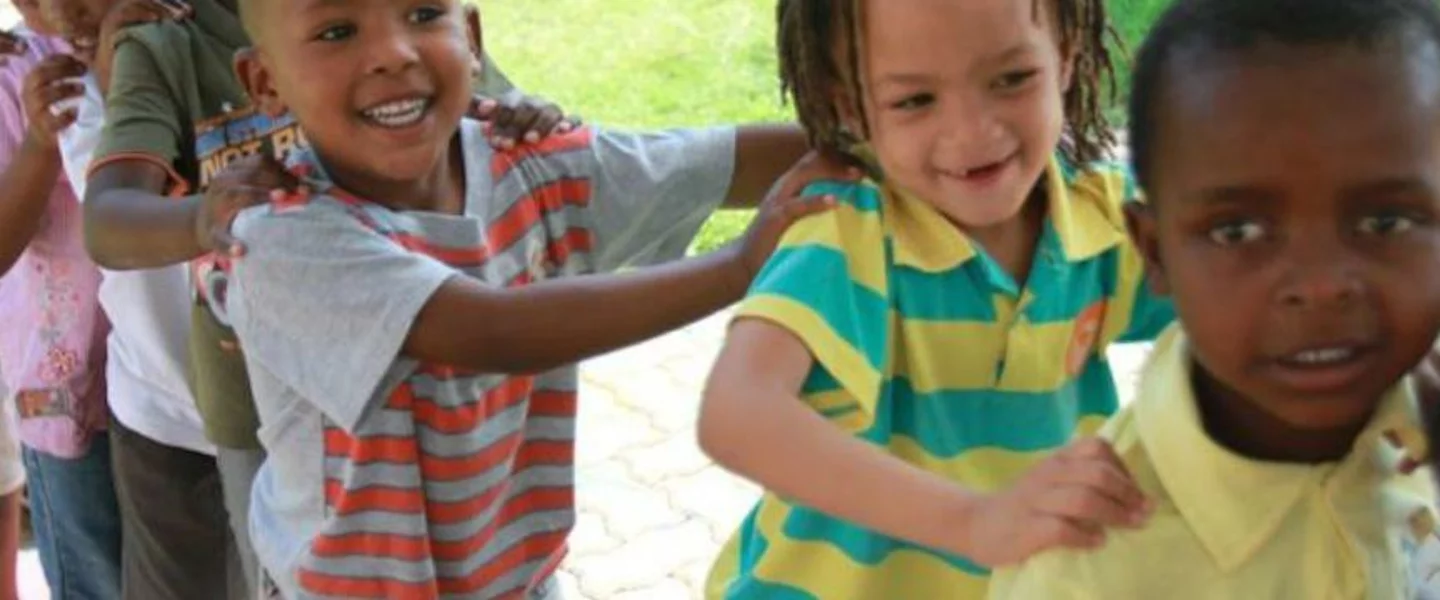Why we need to prevent violence against children to boost South Africa's economy
by Celia Hsiao, Catherine L. Ward, Xiangming Fang, Deborah Fry, Tabitha Casey, Gary Ganz
Advanced manufacturing, infrastructure productivity, and service exports are often upheld as the means to promote growth in South Africa’s economy. What we seldom think about is how investments in our children, particularly in preventing early experiences of violence, can also lead to significant gross domestic product (GDP) growth.
With this in mind, Save the Children South Africa commissioned a team of experts to estimate the social burden and economic cost of violence against children (VAC) in South Africa - using the recently released prevalence rates from the Optimus Study on child abuse, violence and neglect in South Africa.
The resulting study Violence unwrapped - The social and economic burden of violence against children in South Africa was launched in November 2016.
Violence against children: a social burden
The study showed that the social burden of various types of violence against children is significant. The graph below visualise their harmful effects on individuals who have experienced violence as a child as compared to those who have not.
The significance of these findings is clear: any form of violence experienced during childhood places children at great risk of developing a host of negative outcomes in life. Because of these outcomes, all forms of VAC contribute to a myriad of social problems in South Africa.
The study further demonstrated that if we could prevent children from experiencing violence, specific social issues could be notably reduced. The graph below visualises that the prevention of sexual, physical and emotional violence could significantly reduce issues such as self-harm, alcohol and drug abuse or anxiety.
Violence in childhood is harmful not only to the individual through the horrific pain, suffering and subsequent trauma experienced, but it is also destructive to the health and well-being of our society. By preventing violence against children, we are in essence building a healthier and more wholesome society.
Economic costs of violence against children
In a second step, the study estimated how much South Africa has lost as a result of children not being able to reach their full potential and become fully functional and contributing members of society because of violence.
What this means is that if South Africa increases its investment in preventing violence against children, we could recover up to 6% of our GDP.
The link between investments in VAC prevention and building of a stronger economy is also shown in the study’s evidence: Adults who experienced physical violence as a child earn a monthly income that is 11.7% less than adults who were not physically abused as children. Adults who were emotionally abused as children, earn on average 9.2% less a month than those who were not emotionally abused as children.
Cardiovascular disease and diabetes are two other serious causes of ill health in South Africa. Measured in terms of years of healthy life lost, VAC causes more damage to society and to the economy than cardiovascular disease and diabetes put together.
Why we need to invest in violence prevention
The study establishes a strong case for investment in violence prevention in South Africa.
Extensive neuroscience research has robustly illustrated that rapid brain development occurs in the early years of life; experiences of violence, abuse, and neglect can have dire consequences and may permanently impact the architecture and chemistry of the developing brain. Such early damage can gravely deplete children’s “cognitive capital”, the key set of intellectual skills (communication, problem solving, decision making) that determine the human capital which drives a nation’s economy and growth.
The study shows South Africa’s cost of inaction – that is, our lack of preventing violence against children – contributes significantly to lowered human capital, which severely impinges on our country’s economy.
Investments in early prevention yields higher returns compared to investments in response services not only because remedial services to address violence after it has taken place are more costly than initial preventative meausres, but investments in prevention eradicate the problem before it even occurs, thus ensuring that violence is not transmitted from one generation to the next.
Currently in South Africa, the budget for prevention and early intervention services is less than 1% of the combined national and provincial Department of Social Development budgets. Moreover, all provinces, with the exception of Gauteng, show a decrease in allocations to prevention services over the medium-term expenditure framework for the period of 2016/2017 to 2018/2019.
Given what we now know from the study, a great deal of advocacy effort is necessary to work with government on budget allocations to ensure that children are protected from violence and thus given the best opportunities in life to reach their full potential.
In Nelson Mandela’s words: "Our children are our greatest treasure. They are our future. Those who abuse them tear at the fabric of our society and weaken our nation."
It is now more timeous than ever that we act on these words.
The full study Violence unwrapped - The social and economic burden of violence against children in South Africa can be downloaded from http://violenceunwrapped.savethechildren.org.za/
The authors
- Celia Hsiao is Research Manager at Save the Children South Africa
- Catherine L. Ward is Associate Professor at the Department of Psychology, University of Cape Town, South Africa
- Xiangming Fang is Professor of Health Economics at Georgia State University, USA
- Deborah Fry is Lecturer in Child Protection at the University of Edinburgh, Scotland
- Tabitha Casey is Project Manager for Child Protection Research, University of Edinburgh, Scotland
- Gary Ganz is Research Assistant at the Department of Psychology, University of Cape Town, South Africa

